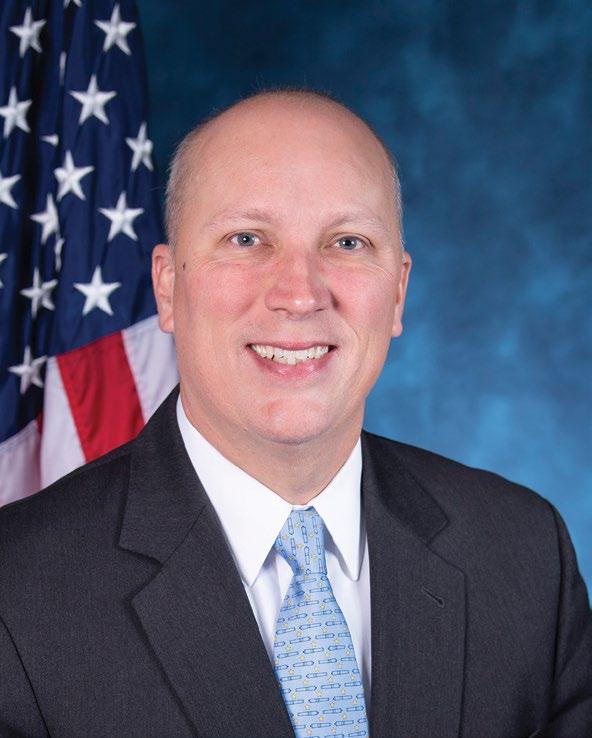
2 minute read
Spotlight on the 116th Congress: Rep. Chip Roy (R-TX-21
Spotlight on the 116th Congress: U.S. Rep. Chip Roy (R-TX-21)
QDuring your time working with the Texas attorney general, what qualities or skills did you develop that you utilize as a representative?
AFirst, I was responsible for managing for the attorney general an organization of over 4,000 employees, with 700 lawyers managing 28,000 lawsuits, which gave me a firm understanding of the responsibility of the executive branch to carry out the laws and administration of government. But, most of all, it gave me a firm appreciation for the importance of defending the U.S. Constitution and the rule of law for the ability of free enterprise to flourish.
QHow is relief legislation, similar to what was passed during the pandemic, important to small-business owners?
AThe state and local response to COVID-19, right or wrong, crippled small businesses. Because it was the government response that prevented business owners from keeping their doors open, it was incumbent upon government to compensate for the loss. Relief legislation like the Paycheck Protection Program (PPP) and my PPP Flexibility Act provided the necessary cash flow to bridge this gap so small-business owners could pay their bills and keep their employees.
QHow has your role on the House Committee on Oversight and Reform influenced your opinions on the impact of legislation on small business?
AI’ve learned throughout my experience on the Oversight Committee that the committee can be a good venue for reviewing legislation and the implementation of such policies, but I wish the committee would exercise that role more often. For example, there is plenty of oversight we could be doing over the trillions of dollars spent during the coronavirus response, including funds to small businesses to ensure funding was properly spent and that small businesses that need funding receive it accordingly.
QWhat challenges have you helped small businesses in your district overcome?
AI listened to small-business owners in my district and incorporated their feedback in drafting the PPP Flexibility Act, a bipartisan piece of legislation I introduced with my friend Dean Phillips of Minnesota. This bill, which passed the House and Senate almost unanimously and was recently signed into law by President Trump, provides smallbusiness owners needed flexibility in the use of PPP funds. It helps them adapt to governmentimposed lockdowns that have lasted longer than originally anticipated and gives small-business owners a greater chance of having their PPP loans forgiven.

QIn what ways are you seeking feedback from small businesses in Texas and using that information in Washington, D.C.?
ADuring the pandemic, I have met one-on-one with dozens, if not hundreds, of small-business owners in my district to understand what they need to survive. I worked with local trade organizations like the Texas Restaurant Association, the Texas Hotel and Lodging Association, and other local and national trade groups to ensure the legislation I draft and support in Congress addresses their needs during this unprecedented time. I will continue to seek their feedback as we reopen the economy so that we in D.C. understand the continuing challenges they face and adapt our policy solutions to meet those challenges. S








